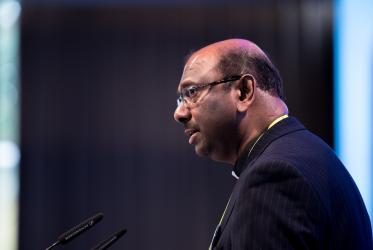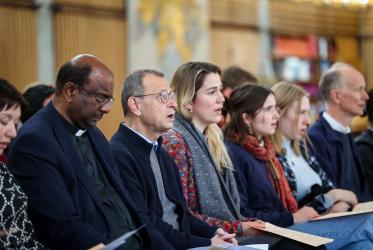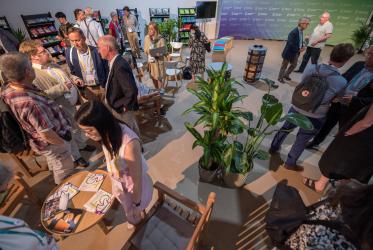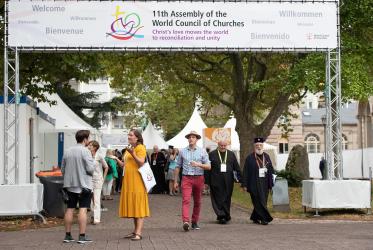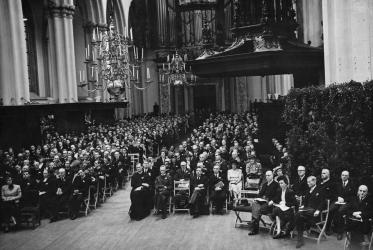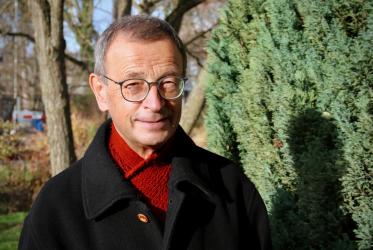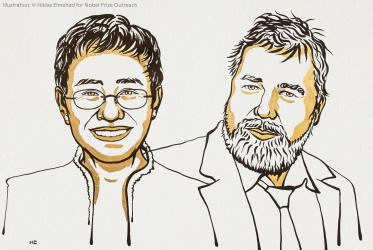Displaying 1 - 20 of 192
WCC congratulates new prior of Taize Community
06 December 2023
Ecumenism in the Philippines means hope and resilience
22 August 2023
At assembly and beyond, WCC publications inspire and move
14 September 2022
Christ’s Love (Re)moves Borders – GETI 2022 in images
13 September 2022
Brother Alois: Faith in Christ means strengthening unity
21 December 2021
WCC mourns passing of Rev. Dr Jose Pepito Manansala Cunanan
18 October 2021
WCC congratulates 2021 Nobel Peace Prize laureates
14 October 2021


